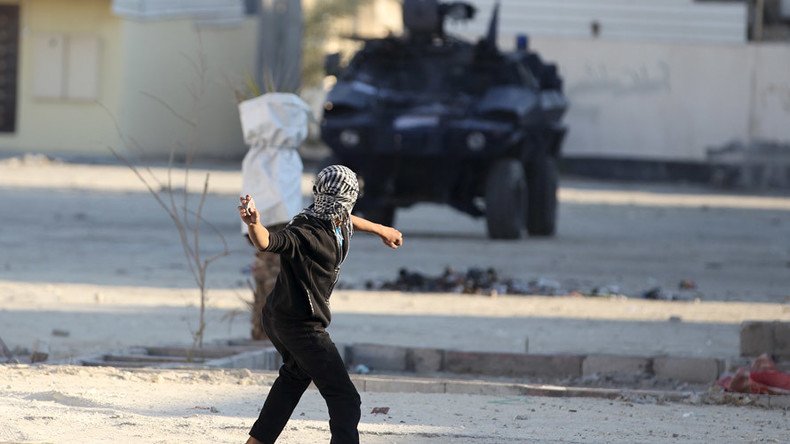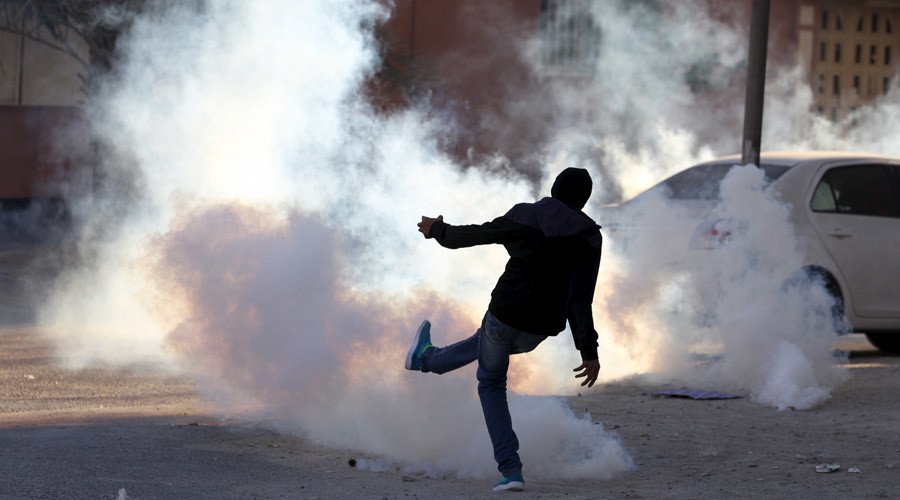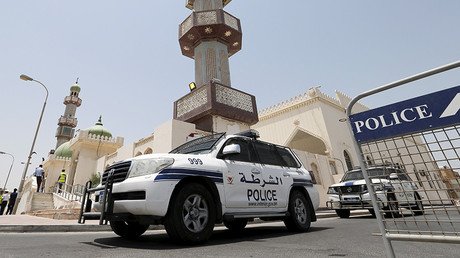UK ‘lobbied to water down’ UN criticism of Bahrain human rights abuses

Human rights groups have condemned the UK government after diplomatic sources told the Observer that Britain had lobbied to protect Bahrain from harsh international condemnation of its abuses, alongside Saudi Arabia.
An insider showed the Sunday newspaper various drafts of the statement by the United Nations Human Rights Council, eventually issued last September.
“The first draft contained many more condemnatory elements than the final outcome,” said the source. “The UK managed to significantly weaken the contents of the text.”
The island kingdom of Bahrain was rocked by mass street protests that began almost exactly five years ago, and while the monarchy has managed to survive, with the help of Saudi Arabia’s intervention and a crackdown, tension has simmered.
An early draft of the statement read: “We are concerned by reports of excessive use of force by the riot police forces.” But this was rewritten to, “We are concerned that there is insufficient accountability for human rights violations.”
“We are concerned about reports of torture and ill-treatment in detention including reprisals against victims reporting human rights abuses,” in the second draft was changed to: “We are concerned about reports of reprisals against victims reporting human rights abuses.”
UK mandarins discussed the wording with the 32 other states that joined the final statement – which were almost exclusively western countries, including the US, Australia, and most EU members. Saudi Arabia, which did not sign the final declaration, but has a seat on the Human Rights Council, lobbied Middle Eastern states, none of which endorsed the document.
“It is very unusual for states to engage in massive PR efforts to support their allies on the human rights council. What we witnessed last September was basically an attempt by the UK to shield Bahrain from any kind of international scrutiny,” Nicolas Agostini, representative to the UN at the Geneva-based International Federation for Human Rights, told the Observer.
Agostini insisted that achieving any UN-backed declaration at all in the face of such opposition was an achievement in itself.
“At the same time as the UK was engaging in this PR exercise on behalf of the Bahraini government, Saudi Arabia was mobilising its foreign service to bully states so that they would not support the statement on Bahrain, which is very sensitive to international pressure and cares about its image. In that sense, managing to have a joint statement on Bahrain, despite the efforts from the UK and Saudi Arabia to prevent it happening, was very important.”
Incidentally, the same month WikiLeaks published a trove of confidential documents demonstrating that London and Riyadh agreeing to trade votes, so that both countries could be elected to the human rights council.

Despite the statement, Amnesty International has said that little has changed in Bahrain over the past half decade, with authorities arresting more activists who had been commemorating the five-year anniversary of the protests last week. There has been little democratic reform, and the state has not released all political prisoners.
The Foreign Office has issued a statement, saying the latest Observer revelations do not discredit its approach to international human rights.
“As with all negotiations, a balance has to be struck between the content of any statement and ensuring that it gains the widest possible support from the international community. We don’t shy away from raising issues of concern, including human rights, at all levels within the government of Bahrain.”
#Bahrain: Military state,repression, collective punishment, hunting protestors like animals. #14Feb uprising anniv. pic.twitter.com/oKdf0V0Hcb
— Sayed Ahmed Alwadaei (@SAlwadaei) February 14, 2016
Reprieve, a leading NGO that fights for the rights of inmates, has criticized the UK’s softly-softly approach.
“It is right that the UK government works to improve other countries’ human rights records. But its work with Bahrain appears to have crossed the line into whitewashing,” said Maya Foa, director of the death penalty team at Reprieve. “This behaviour is especially troubling in light of the potentially imminent resumption of executions in Bahrain and the role of confessions extracted through torture in obtaining death sentences in Bahraini courts.”














